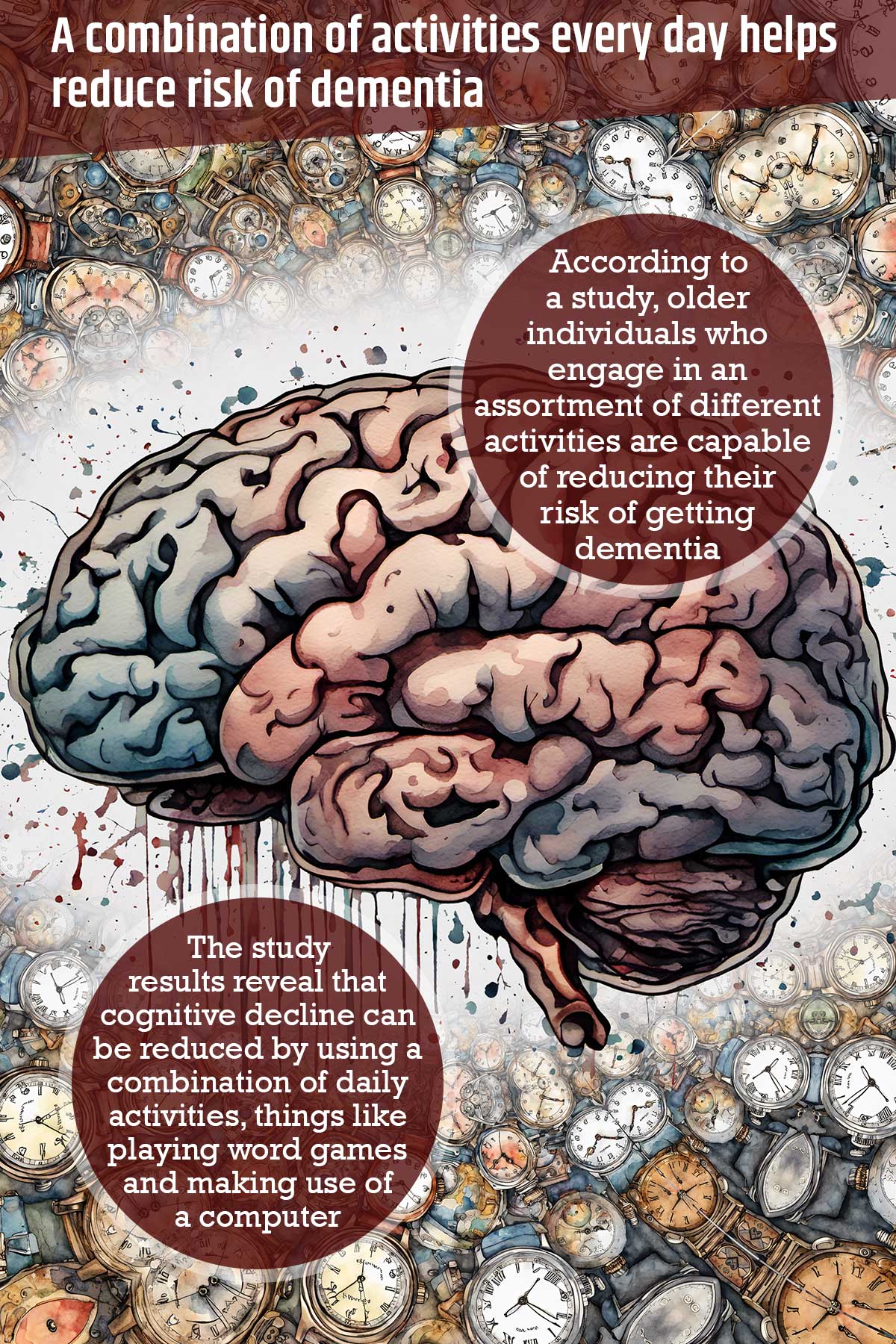According to a study, older individuals who engage in an assortment of different activities are capable of reducing their risk of getting dementia.
Researchers found that participating in a combination of hobbies, such as connecting with loved ones and light exercise, can help reduce memory decline in individuals aged 65 to 89 more in comparison to any individual activity.1✅ JOURNAL REFERENCE
DOI: 10.18632/aging.203753
The study results reveal that the effects of participating in activity combinations increased with age and had more impact than historical factors like baseline memory or education level.
The study looked at data collected from 3,210 individuals between the ages of 65 and 89. Individuals were asked the frequency of their engagement in 33 activities on a scale ranging from ‘never’ to ‘a minimum of once a month’ to ‘several times a month’ to ‘daily’.
A machine learning model was developed for analyzing the effect that activities had on memory. Activities ranged from hobbies like cooking or baking, reading, playing games and cards to a 20-minute walk, or socializing with friends and family by way of phone calls, email, letters, or in-person visits.
The study results reveal that cognitive decline can be reduced by using a combination of daily activities, things like playing word games and making use of a computer.
Scientists thought that genetics were the primary factor that influences cognitive health but these results show the reverse. As we get older, daily activity choices are more important than genetics or existing cognitive skills.
The researchers suggest the results of the study could have an important influence on aging health policies, such as the promotion of new social prescribing programs for helping older individuals stay mentally active.
Social prescribing entails connecting older individuals to a range of community activities like volunteering, art classes, or gardening.
The risk of developing dementia is higher in older individuals as well as other neurodegenerative disorders for which there’s no cure, which is the reason prevention is so important.
This research shows that prevention strategies are effective and a social prescribing healthcare approach can help individuals preserve healthy cognitive function as they grow older.



